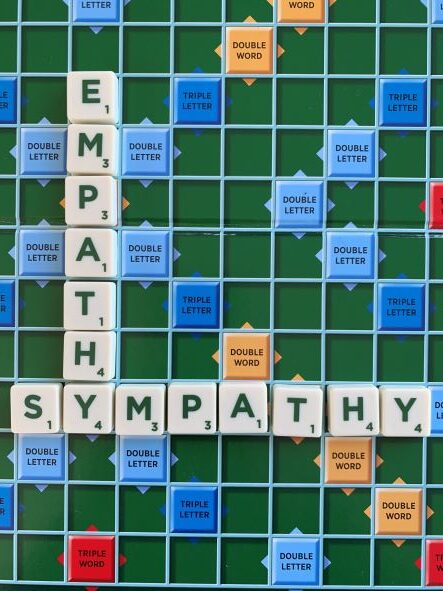
The Media Training Professionals Blog



As Elton John famously sang, “sorry seems to be the hardest word”, and this has certainly been true in many highly public situations – yes, John Howard, I’m looking at you – over the years. But I would suggest it’s not such a hard word for politicians, CEOs, sportspeople and other public figures to say these days. Apologies are everywhere in the media. The hardest thing now seems to be saying ‘sorry’ like they mean it or in short showing empathy.
I know apologies are tough and inevitably happen in highly charged situations. In most cases, it will be impossible to appease everybody, but a good apology can be the first step in mending bridges and restoring reputations. A bad apology, however, can be worse than no apology at all.

This is the ability to put yourself in someone else’s shoes and to understand how they might feel. It’s different from sympathy, which is sharing a feeling with someone. Of course, it’s fine for you to show sympathy if you have experienced the same thing as those you are apologising to, but nothing grates on people more than a “I know how you feel” from someone who obviously doesn’t.
So, in most situations we’re left with empathy. The problem is many people, even those with the best and most heartfelt intentions, fail to show empathy in a genuine way, often because they are trying to defend or explain their actions and/or fear legal blowback.
“I am sorry for any hurt or inconvenience our actions might have caused … [in other words, I don’t really believe I did cause any hurt or inconvenience] …”
“I understand how you feel, but … [here are all the reasons your feelings are invalid] …”
“I’m sorry you feel that way … [that is, I’m sorry you have caused a fuss about this but I’m not actually sorry for doing it] …”
I’m not suggesting you should accept the blame for something you didn’t do or fail to explain how or why something happened. You just need to offer an unconditional apology or statement of empathy up front and let that stand on its own without a ‘but’ (or something to that effect) to undo it all. Otherwise, you could end up sounding disingenuous, indifferent or, worse, uncaring and remorseless.
It is possible – and often desirable or necessary – to be sorry for something that was unavoidable or out of your control. If your apology shows genuine empathy, your audience will be more inclined to listen to the context, explanation or call to action that follows it.
Just a word of caution before we go on, however: beware of talking off-the-cuff, Ideally, you will have already prepared media statements for potential crises. But at the very least, when a situation emerges, you should be quick to adjust an already drafted and approved initial standby statement. It must contain empathy and a commitment to work with relevant agencies but, importantly, no admission of fault. Have it checked for legal implications before you release it.
Empathy is for more than just apologies. It should underpin every form of communication with your audience, especially through the media.
If nothing else, putting yourself in your audience’s shoes will help you work out what they are likely to want to hear from you. It will also help you identify potential negative reactions and issues. So often, the questions from journalists that people think are difficult, unreasonable or unexpected could have been anticipated with an empathy check – that is, ‘What might I be worried or thinking about it if I was in their shoes?”
Showing empathy can also help you sound warmer and more relatable, which are important qualities that are often lost in nerves and the ‘formality’ of delivering your prepared message. If you are showing empathy, you’re more likely to use the word ‘you’ and other personal references (as long as they are appropriate) that ‘humanise’ your message. If people feel like you understand their point of view, they may be more receptive to listening to yours.
Another benefit of empathy is it can water down the defensiveness and negative language we often resort to when we feel threatened. Acknowledging how others feel is more likely to lead you to words such as “I can understand why you might say that …” or “I can see you are hurting …”, rather than heading directly towards negations and negative imagery. Read more about the use of negative language.
My final word on empathy is to urge you to be genuine about it. If you’re not feeling it, there’s no point saying it.
A salutary lesson in how important it is to show true empathy can be found in an exchange between journalist Hamish McDonald and the former CEO of Rio Tinto on Radio National. The interview came in the furore after the mining giant blew up 46,000-year-old indigenous rock shelters in Western Australia in a bid to extract an estimated $135 million worth of iron ore as it expanded its mine site. The CEO’s conditional “we’re sorry for the distress caused” apology and his avoidance of an ‘obvious’ question of remorse only served to dig a bigger PR hole for the company.
If you have a team or a spokesperson who needs to be media-ready, contact us to talk about media training that will fit your needs.
Contact Us